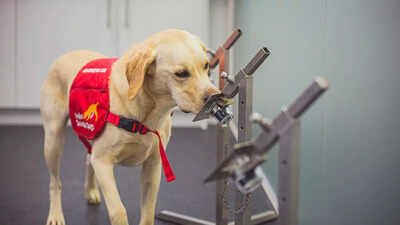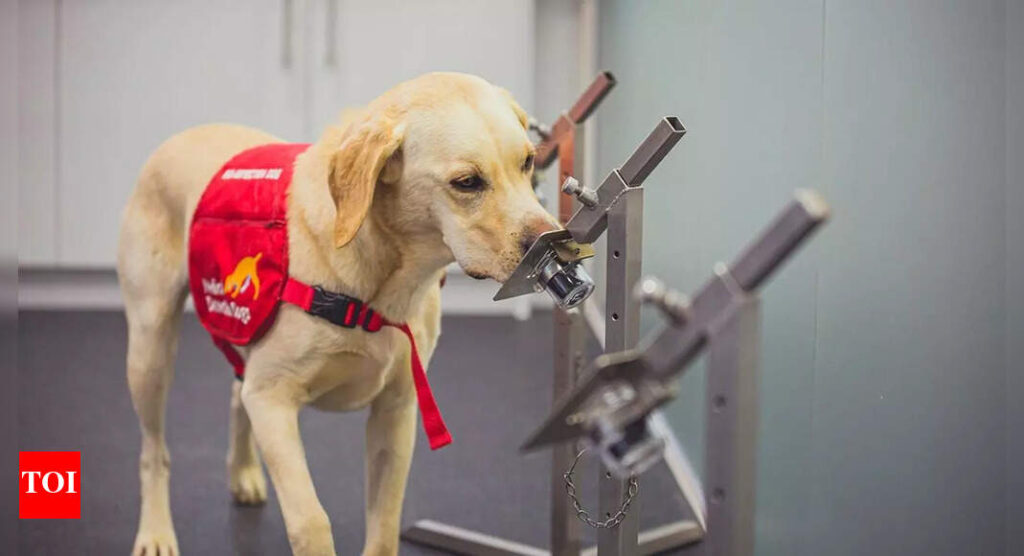
Dogs’ incredible sense of smell has long been used to track fugitives, find human remains, and uncover hidden drugs, but now, researchers say they can also detect Parkinson’s disease with remarkable accuracy. In a recent study published in the Journal of Parkinson’s Disease, two specially trained dogs identified the condition using skin swabs, with up to 80% success in detecting confirmed Parkinson’s cases and up to 98% accuracy in ruling out healthy individuals. Scientists believe this discovery could pave the way for a quick, non-invasive, and cost-effective method for early diagnosis.
Dogs trained to sniff out Parkinson’s symptoms
Parkinson’s disease is a progressive brain disorder that affects movement, often causing tremors, stiffness, and coordination problems. One little-known symptom is the overproduction of sebum, an oily substance secreted by the skin. Researchers believe this excess sebum emits a distinct odour that dogs can be trained to recognise. Five dogs initially began training, but only two passed the rigorous selection process: Bumper, a 2-year-old Golden Retriever, and Peanut, a 3-year-old Black Labrador. These dogs trained on over 200 skin swab samples from both Parkinson’s patients and healthy individuals, learning to identify the disease through scent alone.
Promising accuracy in early diagnosis
During double-blind testing, where researchers did not know which samples were from Parkinson’s patients, the dogs demonstrated impressive accuracy. Bumper and Peanut correctly identified Parkinson’s samples about 80% of the time and avoided false positives with 98% accuracy, even when other health conditions were present. Lead researcher Dr. Nicola Rooney of the University of Bristol said dogs could help develop early detection tools for Parkinson’s, a disease that often goes undiagnosed for years. Claire Guest, CEO of Medical Detection Dogs, emphasised that early diagnosis could allow for interventions to slow disease progression and improve quality of life.










